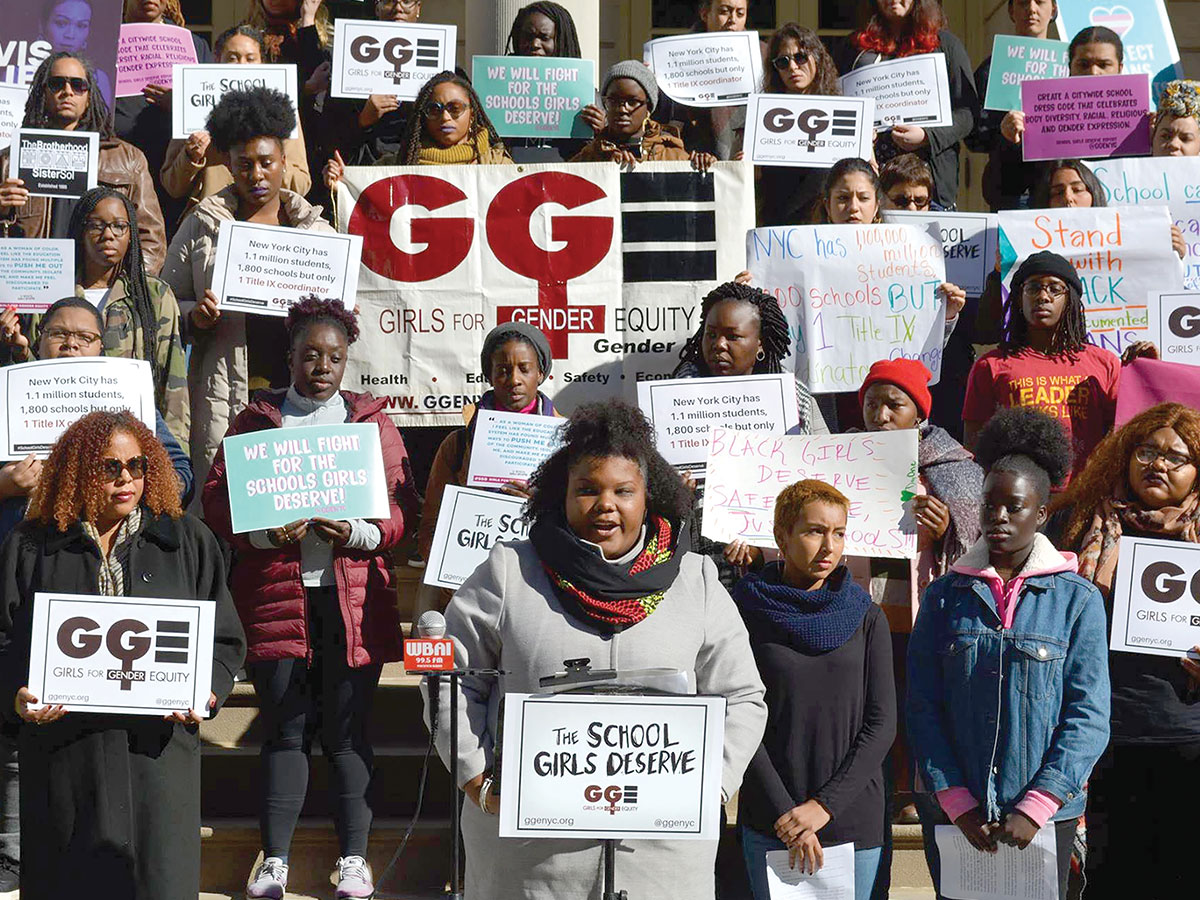
This article is a Q&A conducted by Aimee Bruederle, with Hewlett Foundation Program Officers on how they are using their funding power to support evidence-based policies in Sub-Saharan Africa.
Norma Altshuler and Sarah Lucas are two Program Officers in the Global Development and Population program at the William and Flora Hewlett Foundation. Established through the personal generosity of the Hewlett family, the foundation is wholly independent of the Hewlett Packard Company and the Hewlett Packard Company Foundation. Norma and Sarah are focused on increasing the use of high-quality evidence and data to improve social and economic policies in low- and middle-income countries, especially in sub-Saharan Africa. They have acquired a wealth of knowledge working inside and outside of governments on global development policy analysis, organization and program evaluation, and strategic and operational development of programs. Collectively they have worked in sub-Saharan Africa, Central America, Mexico, Europe, and Washington, D.C. I spent an hour with Norma and Sarah to learn how they see philanthropy’s role in the global development space, especially in advancing government use of data and evidence to create better policies.
Describe your portfolio and the ecosystem in which you work in the international development space.
Sarah Lucas: Our portfolio is dedicated to what we call evidence-informed policymaking. The idea is that governments make decisions every day that fundamentally affect the people they serve. They make decisions about how to allocate scarce budget resources or what policy areas to prioritize. Let’s take an example in the health sector. [Policymakers may ask themselves,] should my administration or my agency prioritize reducing mortality associated with tobacco use or reducing infant mortality? Once they have set policy priorities, they make decisions about how to design programs to implement those priorities. For example, if I want to reduce mortality associated with tobacco use, do I need to [levy] a tobacco tax, or do I need to outlaw smoking in public places? They have to make decisions about who to target. How do I know where the most smokers are in my community?
For every one of those decisions, they need information and many times don’t have it. The kinds of information that we take for granted in [higher-income] countries about tobacco sales, about cause of death, about age of first tobacco use … a lot of that information doesn’t exist in low- and middle-income countries. Governments are flying blind in making fundamental policy decisions that affect people’s lives.
The idea behind our grantmaking is to help solve this problem of the insufficient use of data and evidence to inform policy decisions. We will never be able to identify and fill each of those gaps in information or convince every policymaker to use evidence that does exist. But we can support organizations working directly with governments on policy issues that are a high priority in their own contexts. They, in turn, can identify where there are opportunities to fill gaps in information or in government incentives and capacity to use it. Returning to the health policy example, in some cases, we support organizations that are doing policy research—the kind of research that would help answer the tobacco question. They might ask, what are other countries doing to reduce tobacco use, and what works best under conditions most similar to ours? In other cases, we support organizations that generate and analyze data to understand where problems are most acute, where populations are concentrated, or what parts of the economy are associated with the problem we’re trying to solve. Or [we might support] organizations that are doing impact evaluation so governments know if the programs they implement to curb tobacco use are working.
Norma Altshuler: We know that problems change constantly and that there are new ideas for solutions all the time. So it’s really about the ongoing use of evidence. To facilitate this ongoing use of evidence, we support both African civil society organizations and also international organizations that either help governments strengthen their own data systems or provide governments with outside research that is highly relevant to the kinds of questions the governments are and should be thinking about. Data and evidence alone can’t solve problems, but for essentially every problem that every government (and every grantmaker) is trying to play a role in solving, part of the solution is learning from data and evidence.
Our grantmaking focuses on a number of areas. One of these is on the big data revolution: the global momentum around improving the quality of data and actually using it to make decisions. We’re also interested in how satellite technologies, machine-learning techniques, and other breakthrough tools developed here in Silicon Valley might play an appropriate role in decision-making by governments. [Our grantmaking also supports] impact evaluations, which civil society organizations and governments use to help determine whether or not programs are achieving their intended goals. This includes considering counterfactuals of what would have happened without a program.
What opportunities do you see for funders, like Hewlett, that are interested in supporting the use of data for development and policymaking?
Lucas: Many funders, including Hewlett at one time, have primarily supported the production of research, evaluation, or data. Our emphasis is now on the use of those things for decision-making by governments. Our grants portfolio targets organizations that are not only producing evidence but are focused on its use. Increasingly our portfolio includes organizations contributing to what we would call the “field” of evidence-informed policymaking. These are groups trying to foster connections across different people to increase shared learning, and they are as interested in government capacity and motivation to use evidence as much as the quality of the evidence itself. Evidence users have long been neglected by funders. I believe there are real opportunities to strengthen our collective work in this area.
Altshuler: Most money is fairly siloed by sector, by geography, or by both. In many cases, NGOs have to stick to pre-specified plans—rather than respond to opportunities on the ground—and only receive support for short periods. We at Hewlett have the flexibility to be sector and geography agnostic and to support evidence use in ways that are cross-cutting. For example, there are some networks we’re supporting that bring together different parts of the evidence community to learn from each other. We hope more funders will play that kind of role. There’s a real opportunity for other grantmakers to push themselves to be more flexible, both in what they fund and in the way that they fund. For example, allowing organizations to be responsive rather than [requiring them to] have detailed strategic plans several years in advance. We are very lucky to have the flexibility to be able to do that, and we’ve been excited to see champions within larger institutions (including government funders!) take steps in this direction.
[When I joined Hewlett,] I learned there was much momentum and appetite there is for evidence in the Global South, and particularly in the context I’m most familiar with, in Africa. There are many great civil society organizations that produce high-quality research, communicate well about it, and have an exceptionally strong understanding of the policy landscape and an ability to make a difference on the ground. I think it’s easy, especially in our world today, to become disillusioned that evidence isn’t always part of the conversation. But it’s been heartening to me to see that, while it’s certainly not the dominant factor—and many other factors should play a role—that there are governments genuinely excited about how data can help them solve problems citizens consider a priority. Development, of course, is fundamentally about building institutions, and there are many great opportunities to build evidence-oriented institutions.
Lucas: Our grantmaking focuses pretty heavily on East and West Africa, and in those regions, we are seeing momentum around evidence-informed policymaking in the form of much greater demand among policymakers. In fact, some of our grantees working closely with governments are afraid to generate more demand at this time in case they can’t meet it. It’s overly optimistic to say that demand for evidence is outpacing the capacity to meet it, but it is certainly on the rise, and we need more organizations both capable of generating evidence and of working closely with government partners to help meet the demand. This creates an opportunity for influence, which is what funders want. To some degree, there’s a mismatch between this opportunity for influence and the tools funders are now using.
Traditionally, funders interested in research and data and evaluation fund the output and don’t think about how it will be used. Or they fund research in areas they deem important, with less attention to what is most useful to policymakers. These grantmakers are missing an important chance to influence policy if they don’t allow organizations to be responsive when opportunities for influence are present in their context.
Altshuler: Civil society organizations play an important role in encouraging governments to think about problems that may not be at the top of their agenda. [Civil society can help governments] come out ahead by providing research on how to approach issues. Hewlett and other foundations are well positioned to support this.
What are the top challenges that we face, funding in this area?
Altshuler:
- These problems just take time. It is a process to build the kind of “ecosystems” and civil society organizations that can tackle these challenges in an effective way. We are lucky to have the flexibility as an institution to be patient. Not all donors and not all governments do.
- Evidence will always, at best, be only one part of the conversation. I wouldn’t call this a challenge so much as a reality. Other things like citizen priorities matter, and, of course, political considerations will often play a key role. If you make progress, for example, in advancing a policy that we know works to improve nutritional outcomes, it’s very possible that policy may not be continued for esoteric or political reasons. The goal is to have marginal improvements and to have many of them. This in itself can create a sort of quiet revolution.
- People who are good at research are not always good at the policy, politics, systems, and organizational development that are core to solving social challenges. While it is challenging, Hewlett has been lucky to find grantees that straddle both worlds, that understand their blind spots, and that brings on diverse teams to try to tackle these challenges.
Lucas:
- There must be incentives for policymakers to use evidence, yet incentives are possibly the hardest thing for an external funder to influence. [It’s challenging] when you are trying to effect change, but one of the most important levers is not readily available. How can we [as the Hewlett Foundation] meaningfully influence the incentives that are driving government behavior in multiple countries around the world where we have no presence?
- A second challenge is around capacity. There are many governments, many decision makers, and other people involved, and there are several gaps in their capacity individually. We haven’t figured out if and how we can move the needle. A number of our grantees are explicitly working with government officials to provide training on how to find and use research. However, we don’t have a scalable vision for capacity change. Like incentives, the capacity to integrate evidence into the decision-making process is a deal breaker.
- Understanding what it all adds up to. These are really big issues. Our grantmaking is not sector specific, and we are only loosely constrained geographically. We don’t have the capacity to determine the baseline for the use of evidence in policymaking across these regions and then calculate the change in its use five years from now. So, we can’t precisely understand how our grantmaking contributes to change. There is a leap of faith involved. But that doesn’t get us off the hook in terms of tracking progress. We do need to figure out the right variables to track. What are the assumptions to be tested in that leap of faith? What would tell us whether we and our grantees are on track towards our shared goals?
- Bringing funders along. We would like to see increased funder appreciation for flexible support. We are, however, seeing many funders in research, impact, and evaluation spaces, for example, reverting back to project support and/or channeling funding through their research councils or academics who then collaborate with in-country partners. That approach is counter to our goal of building an ecosystem for evidence used at the country level and putting the decision-making power with the people closest to the action.
Resources
- On Think Tanks
- Biographies for Norma Altshuler, Sarah Lucas, and Aimée Bruederle
- Organizations working on translating evidence and research for policymaking


